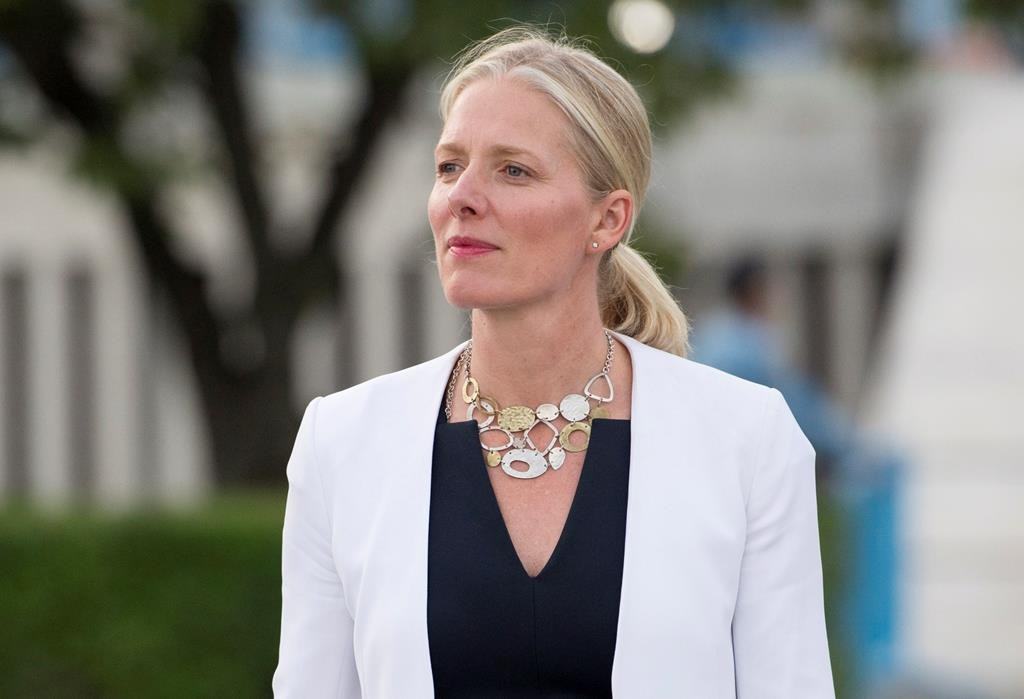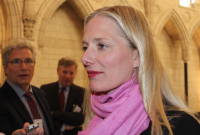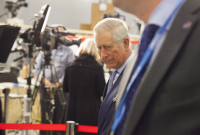Support strong Canadian climate journalism for 2025
“Follow the money” is a catch phrase popularized by the movie All the President’s Men. It was the advice from the secret source known as Deep Throat to unravel President Richard Nixon’s web of corruption.
It’s also good advice in understanding why 30 years of talking about climate change has resulted in so little action. Government and industry say good things while subsidizing and investing in bad things.
This week the Canadian and U.K. governments announced they "will champion a global alliance on the transition from unabated coal-fired electricity at next month’s United Nations climate change meetings in Bonn, Germany. From cleaner air, to public health, to sustainability, the benefits of moving towards low or non-emitting sources of power are clear.”
Sounds great, but are they putting their money where their mouths are?
On Oct. 12, The New York Times revealed the Canada Pension Plan Investment Board (CPPIB) is bidding on the coal assets of Rio Tinto. The deal is expected to yield $2 billion for the international mining giant. So despite Canada’s “commitment” to phase out coal at home and abroad, it’s putting our money into the coal industry. This isn’t an isolated case – the CPPIB has investments in at least 35 coal companies at last count. Among them is Duke Energy which has been fined millions for pollution.
Catherine McKenna, Minister of Environment and Climate Change who made the announcement in London, would probably say the CPPIB is an independent body not controlled by the government. The logic would be that there is therefore no conflict between her leading the coal phase-out parade and the Board leading investment in coal!
Government should ensure proper investments
So let’s follow the money. It’s easy because the trail isn’t complicated or hidden. The CPPIB controls a $320 billion fund created by the government. It has been a successful investor earning reasonable returns on taxpayers' money. It also receives about $5 billion annually from the Canada Pension Plan (CPP). These are funds in excess of the needs of the CPP to pay pension benefits.
The money comes from mandated payroll deductions paid by Canadian workers and employers. Technically, this is a not a tax, but it is collected by the government and handed over to the CPP by the government. Many organizations including the Canadian Taxpayers Federation call CPP contributions a tax. The Merriam-Webster dictionary defines a tax as “a charge usually of money imposed by authority on persons or property for public purposes.”
A tax is not a bad thing. We need a pension fund. Investing contributions may even be a good idea.
The point, however, is the government should ensure the funds are invested properly. This could be done by legislation, regulation or other means. When it comes to extending government policy on climate, health or environmental issues to the Canada Pension Plan or other pensions, Canada has done little.
Current regulations address risk but only in the traditional financial sense. Governments could require “climate risk” to be a factor in determining investments. Government could also pass climate change legislation requiring all the funds it collects be invested in line with climate change policy. The federal government appoints the board of the CPPIB; it could chose to pick people who understand climate risk.
Interestingly, the Canada Pension Plan restricts itself from investing in landmines or where human rights may be impacted. So government policy can and has impacted the CPPIB. Why not climate change policy? The CPPIB's approach to climate change allows investments in oil wells, fracking operations, gas fields and coal mines, regardless of government climate change policy.
Because neither the government nor the CPPIB has acted responsibly, Canada is now sending conflicting messages.
Why not extend leadership on climate change to pension fund investments?
Does Canada really want coal phased out or is it just trying to drive down the value of coal assets so it can buy them cheaply? Certainly these actions justify both conclusions.
Fortunately, Rio Tinto isn’t a done deal yet. Bidding doesn’t close till December. There is time to stop the CPPIB and, perhaps start a public dialogue on how our mandatory contributions are invested.
Friends of the Earth Canada strongly supports the government’s action on climate change and we are proud of the leadership Canada has shown. I don’t understand why that action and leadership does not extend to the CPP and other Canadian pension funds. CPPIB has respected Canadian land mine and human rights policies. Why not climate change? Why not the coal phase-out?
Globally coal-fired electricity is very large producer of of greenhouse gases. Canada, however relies on coal for a tiny fraction of electricity generation. Canada could have a far greater impact on coal pollution by phasing out the CPPIB’s investment in coal.
Doing so would also significantly strengthen Canada’s diplomatic efforts to phase out coal.
Surely, Prime Minister Justin Trudeau and CPPIB President Mark Machin can put their heads together on climate change policy and put our money where it will do some good.






Comments